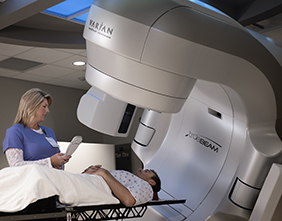Early Warning Heart Disease Screenings
Cardiac Testing
Minimally Invasive Heart Surgery
Bypass Surgery
Aortic Valve Replacement Surgery
Open-Heart Surgery
Cardiology Department
Cardiac Catheterization
Cardiac Rehabilitation
Pacemaker & Cardiac Defibrillator (ICD) Procedures
Vascular Screening
Vascular Surgery
Same Day Cardiology Appointments
Transcatheter Aortic Valve Replacement (TAVR) Procedure
Pacemaker & Cardiac Defibrillator (ICD) Procedures
In 2004, Lima Memorial Heart and Vascular Institute became the first cardiac center in the region to surgically place an implantable cardiac defibrillator (ICD) in a patient.
What is a Cardiac Defibrillator (ICD)?
An ICD is a small electronic device installed inside the chest to prevent sudden death from cardiac arrest due to abnormally fast or erratic heart rhythms (tachycardia or ventricular fibrillation, respectively). The ICD monitors the heart rhythm. When the heart is beating normally, the device is inactive. If the heart develops a life- threatening tachycardia, the ICD delivers an electrical shock or shocks to the heart to return the heart rhythm to normal.
What is a Pacemaker?
Pacemakers are commonly used to correct an abnormally slow heartbeat by sending electrical impulses to one or more chambers of the heart. There are a variety of conditions that may call for pacing. Pacemakers may be permanent or temporary. A permanent pacemaker is implanted into a patient’s chest during a minor surgical procedure. A short stay in the hospital may be required, and some patients may need to take medications afterward to help the heart maintain a normal rhythm.
If you have questions about Cardiac Defibrillators (ICD) or Pacemakers, please contact Lima Memorial Heart and Vascular Institute to learn more at 419-224-5915.
Medical Services



